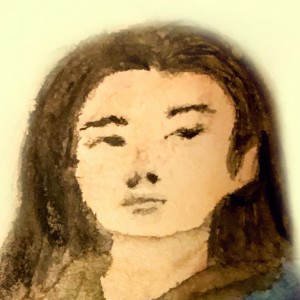Warning: references to infant death.
There were three things that ultimately shaped my mother’s life. My mother lived through the Second World War. Her family lived in a small flat in London with the imminent threat of bombs dropping over them.
Once the war was over and Mum had come of age she met Dad and fell in love. But their families were from different Christian denominations, so their parents were opposed to the marriage until Mum converted to Dad’s faith.
Once happily married Mum and Dad had their first child, a girl. Not six months after the birth the baby girl was tucked into bed, never to wake up again.
These were things I was vaguely aware of growing up. Mum and Grandma would mention snippets in passing, saying things like, “Back when the war was on,” or, “When your sister died,” but they never talked about anything in great detail.
My mother had grown up during an era where it wasn’t normal to talk about the past or about one’s feelings. If you talked too much about it you were burdening other people with your problems, or you were oversharing; it was simply not done. So yes, I knew there were three things that changed Mum’s life, but I didn’t know anything about them.
When you’re only a daughter you don’t understand all the reasons your mother did the things she did. I was raised with a softened version of my own mother’s upbringing, the one where you were to be seen and not heard. This nurtured a mentality that it was normal not to talk about the past, since it was in the past and you couldn’t change it. But in this new era where history is cool and talking about mental health is encouraged I wasn’t as silent as Mum had been.
As I grew older I wanted to know what happened to my mother. What had she seen? What were her relationships with the family like in the past? What were her feelings about losing a child? These were questions that I wanted answers to, questions my sister and I would always discuss but never ask.
After I’d gotten married and moved out I began to consider how motherhood works. I was old enough to understand why the age of silent parents had happened and why it might be hard for them to open up, but to me who had been raised in a very different world I was angry.
I was angry that while it was much easier for me to talk about the difficult emotions, it was almost impossible to get a word out from Mum. I was angry that she’d kept things from me, that she never told me what her life was like when she was only a daughter. She’d never told me what it was like for her to become a mother.
But, as I raved to my husband one night, I was also angry at myself for falling in the line of silence. Did I even have the right to be angry at my mother’s silence when I never posed any of my questions to her?











Comments (0)
See all